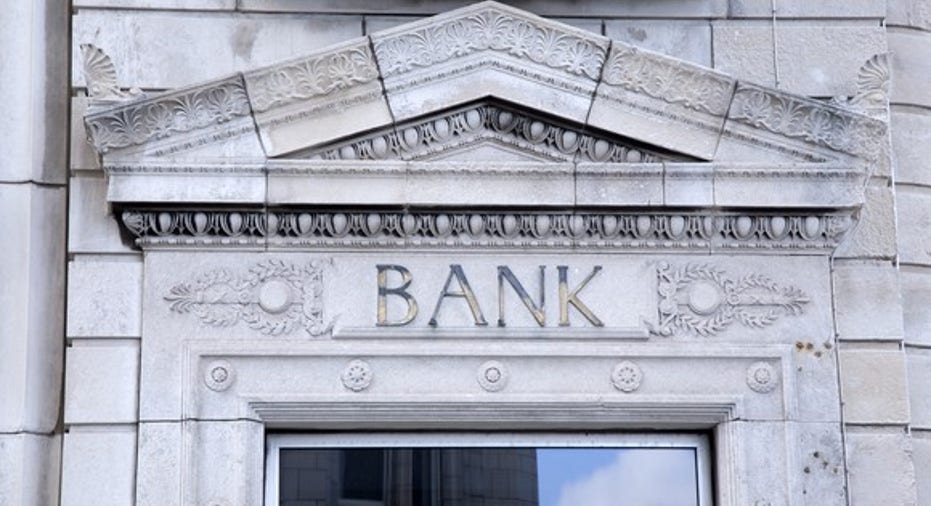How a Donald Trump Presidency Could Affect Bank Stocks

Image source: Getty Images.
Now that Donald Trump has been elected President of the United States, many investors are understandably concerned as to what they should expect over the next four years. In fact, as the election results were pointing to a Trump victory, Dow Jones Industrial Average futures were down by as much as 800 points. Even if the markets experience a post-election drop, bank stocks should do just fine.
Why Donald Trump could be good for bank stocks
As I write this at approximately 10:00 a.m. EST the day after the election, bank stocks are among the market's best performers. Just to name a few, Bank of America is up 3.6%, Wells Fargo is up 2.9%, and JPMorgan Chase has gained 3.3%. This is despite a market that is slightly down in the wake of the election. Why are these companies outperforming the market?
For one thing, the combination of Trump in the White House and Republican control of both houses of Congress is good for the banks from a regulatory standpoint. As my colleague Sean Williams already wrote, vocal supporters of tougher restrictions on banks like Senator Elizabeth Warren are likely to face a huge uphill battle now. Regulatory uncertainty includes everything from the Federal Reserve to the Consumer Financial Protection Bureau to the Dodd-Frank Act.
According to Dick Bove of Rafferty Capital Markets, the election results should lead to higher rates of inflation, higher interest rates, and an overall stronger economy. Trump's new economic policies are likely to result in more bank lending, higher interest rates, which translate into higher profit margins, and higher inflation, which leads to higher loan amounts. Bove also acknowledges that regulations are likely to be reduced, and the combination of this with the other factors mentioned produce a "huge win for banks."
Bove says that any plunge in the stock market makes little sense, and that the fear of the unknown is behind any market drop. However, he points out that the things we do know aren't negative -- for stocks, at least. Lower corporate tax rates, higher tariffs, and looser regulations all have the potential to increase corporate profits in the U.S.
Finally, banks that rely on trading revenue such as Goldman Sachs (NYSE: GS), JPMorgan Chase, and Morgan Stanley could all benefit from the volatility created by the election as investors reposition their portfolios. Trump means uncertainty in the eyes of many investors, which generally translates to increased trading activity. These banks benefited from Brexit-related volatility during the third quarter, and the same will likely be true here.
For example, Goldman Sachs blew past its third-quarter earnings expectations on the top and bottom lines, and a big reason for this was the Brexit-fueled increase in trading revenue. Year over year, Goldman's trading revenue swelled by 17%, with a particularly large boost in fixed-income, currency, and commodity trading revenue, which soared by 34% to nearly $2 billion.
Goldman's other business segments could benefit tremendously as well from a Trump presidency. If Trump's plans produce the economic growth he claims, that could be great for IPO and merger and acquisition activity, as well as Goldman's own investment portfolio. And the bank's $1.35 trillion investment management business could benefit from a combination of inflows of capital and asset appreciation.
What about the rest of the stock market?
While a post-election stock market drop of 5%-10% as many experts have predicted is entirely possible and would be scary, I'd suggest looking at it as an excellent long-term buying opportunity. History is certainly on your side as an investor. In fact, with a Republican president and a Republican-controlled Congress, the S&P 500 has historically grown at an average rate of 16.36% per year.
There's certainly no guarantee that this will repeat itself, and Trump is not the typical Republican president, to say the least. However, the reality is that when one party controls the White House and Congress, more things get done that can create jobs, drive wage growth, and otherwise boost the economy.
In addition, as long-term investors, we shouldn't be too worried about the effects of any one president on our stocks. As Warren Buffett, an outspoken Clinton supporter, said about the election in a letter to shareholders, "For 240 years it's been a terrible mistake to bet against America, and now is no time to start."
10 stocks we like better than Goldman Sachs When investing geniuses David and Tom Gardner have a stock tip, it can pay to listen. After all, the newsletter they have run for over a decade, Motley Fool Stock Advisor, has tripled the market.*
David and Tom just revealed what they believe are the ten best stocks for investors to buy right now and Goldman Sachs wasn't one of them! That's right -- they think these 10 stocks are even better buys.
Click here to learn about these picks!
*Stock Advisor returns as of November 7, 2016
Matthew Frankel owns shares of Bank of America, Goldman Sachs, and Morgan Stanley. The Motley Fool owns shares of Wells Fargo. The Motley Fool recommends Bank of America. Try any of our Foolish newsletter services free for 30 days. We Fools may not all hold the same opinions, but we all believe that considering a diverse range of insights makes us better investors. The Motley Fool has a disclosure policy.



















